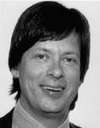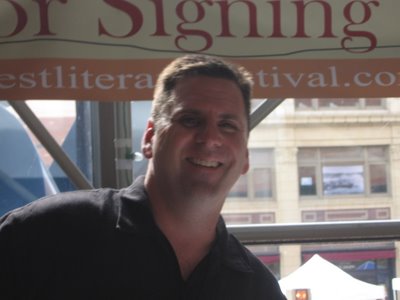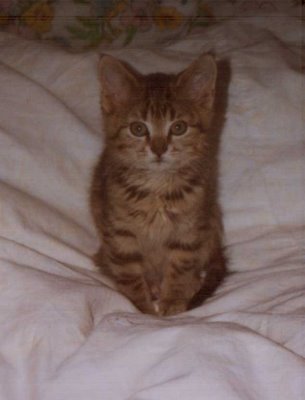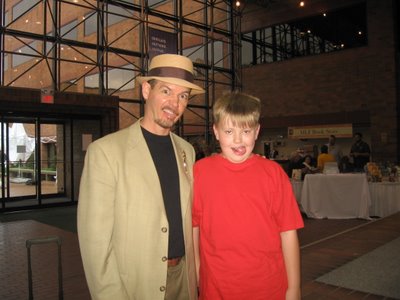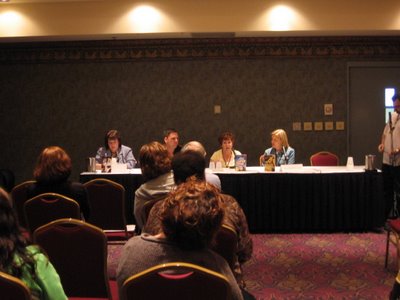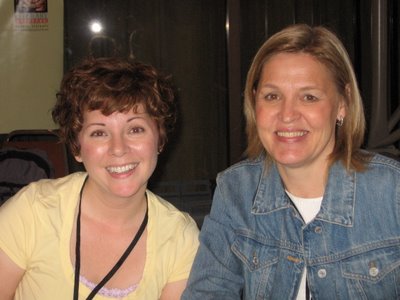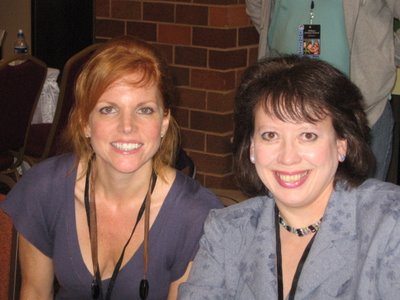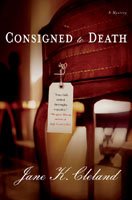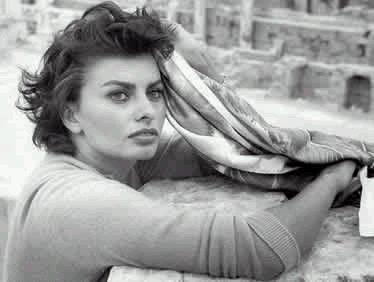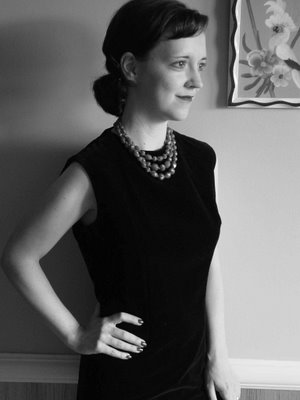 You were born and raised in Algonquin, Illinois. How did you end up living and writing in California?
You were born and raised in Algonquin, Illinois. How did you end up living and writing in California?I went to Loyola University Chicago and got a bachelor’s in communication, which got me a job as a personal trainer. Of course. It was good money, but it wasn’t my thing; my thing was working for free for a small commercial production company. When the film bug nestled under my skin, I set my sights on Hollywood. For some reason I thought people wrote scripts and sold them. I had no idea. I ended up reading scripts, and working for free, again. In the meantime, though, I was enrolled in Chapman University’s Graduate Film program. I had a screenwriting professor who really got my writing, and actually talked me out of Hollywood (and, as it turns out, into this equally crazy business).
I still live in California because it’s a strategic family hub: the core group meets in Palm Springs each year for a few weeks. My grandmother started the tradition before I was born—the Schwegels love to golf—all except me. I’m poolside.
On your website you refer to your parents as your best friends. Not all offspring are wise or mature enough to see the truth of this. What makes you so appreciative of your parents?You wouldn’t ask this if you knew them—you would join me in aspiring to their level of cool. I could run down the usual list about why anyone appreciates somebody else: support, encouragement, cash when you’re broke, etcetera, but here’s a memory that more creatively illustrates my point:
My parents and I don’t get to see each other that much, but as it turned out they were here and all three of us caught the same flight back to Chicago (I like to call those trips “research”). Our plane wound up getting diverted to Denver because it didn’t have enough gas—yep, that’s what I said. Long, painful United Airlines story short, we were stuck on the plane for about twelve hours, no food, no nothing.
When we finally got home, we’d missed lunch and dinner and nearly breakfast, too, and we were all on the brink of delirium. But did my parents give up, and call it a day (night/day)? No: my dad opened a bottle of Moet Chandon, my mom baked a tray of French fries, and we stayed up and told stories and laughed and made the whole ordeal worth it.
Maybe that doesn’t actually answer your question, but they always seem to have answers for mine.
I love your parents now.
You took a lot of screenwriting classes. What made you want to write a mystery novel instead of a mystery movie? I did write a mystery movie. It was called OFFICER DOWN (no, not the one that wound up on Lifetime with Sherrilyn Fenn, thank you very much). Anyway I wrote it for my thesis; it won awards at Chapman, and was a runner-up in Scriptapalooza (I know: now you’re really impressed). I submitted it to a few agents and production companies. But as I mentioned, in my experience, Hollywood ranks spec scripts a few points lower than scratch paper. Even if you know someone who knows someone (which I did), the odds don’t fall in your favor.
There are exceptions, always—and in fact the reason I am published in the first place is because of my Hollywood experience. I also think screenwriting has influenced my fiction writing tremendously, particularly in structure and word economy.
What was the inspiration for Officer Down?This story is getting old, particularly to the woman who served as inspiration: she’s one of my very best friends, and she had an affair with a married cop. I guess you could say she did my research for me. She was head-over-heels upside-down stupid for the guy, and he had no intention of letting her see him for who he really was.
What interested me about the situation was that my friend was (is) a strong, rational woman, and he was able to tear her down completely. In writing this story, I wanted to understand the mechanics of manipulation. I wanted to know how this man could call my friend a whore and make her believe it.
Obviously, in the novel, I heightened the stakes. In hindsight I think I got away with a lot of Mack’s behavior because I was able to play the grief card, and I’m not sure, even now, that I fully understand why she was with Mason. Low self-esteem is the easy answer.
There are so many women out there who fall into this trap; thank God my friend got herself out of it. Today she’s happily, normally married with children and would most likely prefer that I make up something for the inspiration question at this point. So maybe you heard it here last.
Well, thanks for telling it one last time. :)
You got terrific reviews of the book. Were you confident that you would, or did the overwhelmingly positive response surprise you?Look, I’m surprised when people say they actually read the book—at least those who have had no direct contact with my mother. I didn’t expect good reviews, and I know I have been fortunate. Especially because what was most important to me was to write truthfully—to cut out the cool and get to the real grit—which is tough to do when the main character is in denial until about the last four pages. I suppose readers got that: Mack’s cool was a necessary cover.
I did receive quite a bit of negative feedback about the profane language and Mack’s drinking and smoking. But again, I was aiming for truth. And Mack’s bad behavior was part of the ‘cool’ she used to cover her self-loathing.
On the whole, though, the reviews have been unbelievably good. Guess my mother’s influence is far-reaching…
You are too modest. Is this novel a stand-alone, or will “Smack” Mack return?I think Samantha Mack is in rehab. My editor and agent and I all agreed I’d pretty well exhausted her. For the next three books, I’m writing stand-alones within the landscape of the Chicago PD. My second novel, PROBABLE CAUSE, is a coming-of-age rookie story; my third, PERSON OF INTEREST, is about a gang-unit detective and his lonely mess of a wife.
You and I are both fans of Ross MacDonald’s writing. What is it that you like about him?First, the no-frills style: he’s one of those writers who manages to pinpoint a character in their entirety in the matter of a single sentence. Second, voice: when I read MacDonald, the crime is hardly the point. For me, Lew Archer and the people he bounces around are what make the story work. I look to writers like MacDonald and James M. Cain and Charles Willeford and James Crumley—the men whose characters, and voices, are key.
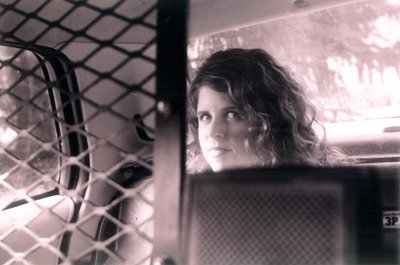 It sounds like you’ve worked very hard to get where you are. Will you be taking a break any time soon? Going to the Bahamas and having a tropical drink with a little umbrella in it?
It sounds like you’ve worked very hard to get where you are. Will you be taking a break any time soon? Going to the Bahamas and having a tropical drink with a little umbrella in it?Taking a break for me right now is standing up and stretching. I will, however, be side-tripping a few days in Chicago after Bouchercon—more research, a Bears game. And, I’ll be touring in January for PROBABLE CAUSE with Megan Abbott, the Britney to my X-tina until after the Anthonys (or maybe it’s the other way around? She does have a better voice).
After all that, yes, a fruity drink and some sun would be nice.
What are you reading right now?William Goldman’s MARATHON MAN. My friend Dan Judson recommended it and it’s the most entertaining book I’ve read in a while—so funny. I admire writers who can do humor, particularly in the face of tragedy. I’m trying to work humor into my third book (so far, no one’s laughed). Still, I think that’s why I write about cops: the more wicked the situation, the more wicked the joke. They have to be that way or they’d all eat their guns.
Do you have hobbies that keep you busy outside of writing? Used to be reading, but my eye doctor recommended that I “go to the beach. Watch the birds. Quit looking at words.” I’m not so interested in birds, so I do yoga. Or I run. I listen to music—a lot of jazz lately. I like to paint, though I never hang any of the canvases. And bring on the HBO series shows: The Wire is the best show on television, period. Deadwood, Entourage, Rome—all of great.
When you're in Chicago, listen to Dick Buckley's jazz show on WBEZ. Best jazz show anywhere.
Where’s your favorite place to go in California?Menlo Park/Palo Alto. Some of my family lives up there, and I find spending time there so peaceful and rejuvenating.
Also, Sonoma—wine country. Mmmm Cakebread (winery).
You mention that you wanted to go to Hollywood but never quite got there. Do you still want to go there?Sure, if I have tickets to a rock show at the Hollywood Bowl. Otherwise I think I’ve done my time on the 405.
Do you have any particular ritual for your writing? Candles? Coffee? Pets on your feet? Or do you just write come hell or high water?Some days I sit here and rearrange the same eight words. Others, I kick out 800 and I’m still going. I wish I had a ritual, or some system, but writing doesn’t happen 9 to 5 for me.
There is a pet at my feet sometimes, a cat-flavored dog, a chihuahua named Rex. He is not mine, though he lives here. He is very nervous.
You know, Theresa, even your interview answers are written like good sentences in a good novel.
Since you loved the aura of Hollywood, do you have a favorite movie?Megan Abbott beat me to this one (insert catty look here):
Double Indemnity. Film school turned me on to classic noir, and this is my favorite.
Billy Wilder and Raymond Chandler adapting James M. Cain… wish they’d had their own shingle at Paramount.
There’s been a lot of talk about this film lately—probably since it was released on DVD—so I’ll let everyone else do that. I have a book to write.
How can readers find out more about you and Officer Down?Check out my website,
www.theresaschwegel.com, and for show and tell, go to my agent’s blog:
www.dhsliterary.blogspot.comThanks for taking the time to chat, Theresa! This was a real treat.
 My first Bouchercon has been a lovely experience, and I will soon post pictures to prove it. What I can provide now is a top ten list of some of the most interesting things I've learned so far during my jaunt to Madison, WI.
My first Bouchercon has been a lovely experience, and I will soon post pictures to prove it. What I can provide now is a top ten list of some of the most interesting things I've learned so far during my jaunt to Madison, WI.